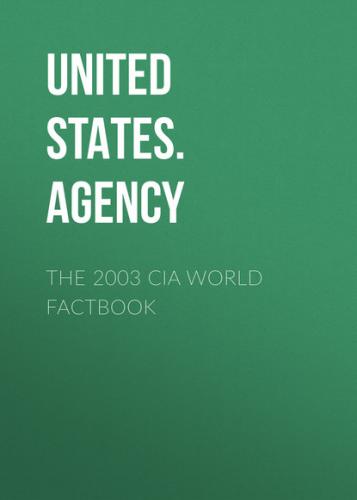20% (1997 est.)
Budget:
revenues: $1.603 billion
expenditures: $1.975 billion, including capital expenditures of $NA
(2001 est.)
Industries:
mining, lumbering, light manufacturing, aluminum smelting, food
processing
Industrial production growth rate:
3.8% (2000 est.)
Electricity - production:
8.801 billion kWh (2001)
Electricity - production by source: fossil fuel: 5% hydro: 95% other: 0% (2001) nuclear: 0%
Electricity - consumption:
8.835 billion kWh (2001)
Electricity - exports:
300 million kWh (2001)
Electricity - imports:
950 million kWh (2001)
Oil - production:
7,000 bbl/day (2001 est.)
Oil - consumption:
38,000 bbl/day (2001 est.)
Oil - exports:
NA (2001)
Oil - imports:
NA (2001)
Oil - proved reserves:
8.255 million bbl (37257)
Natural gas - proved reserves:
11.89 billion cu m (37257)
Agriculture - products: cocoa, rice, coffee, cassava (tapioca), peanuts, corn, shea nuts, bananas; timber
Exports: $2.2 billion f.o.b. (2002 est.)
Exports - commodities:
gold, cocoa, timber, tuna, bauxite, aluminum, manganese ore,
diamonds
Exports - partners:
Netherlands 14.8%, UK 9.9%, US 7%, Germany 6.6%, France 5.8%,
Nigeria 4.8%, Belgium 4.4%, Italy 4.2% (2002)
Imports:
$2.8 billion f.o.b. (2002 est.)
Imports - commodities:
capital equipment, petroleum, foodstuffs
Imports - partners:
Nigeria 21.3%, UK 7.2%, US 6.6%, China 6.2%, Italy 6.1%, Cote
d'Ivoire 6.1%, Germany 4.7%, Netherlands 4% (2002)
Debt - external:
$7.2 billion (2002 est.)
Economic aid - recipient:
$6.9 billion (1999)
Currency:
cedi (GHC)
Currency code:
GHC
Exchange rates:
cedis per US dollar - NA (2002), 7,170.76 (2001), 5,455.06 (2000),
2,669.3 (1999), 2,314.15 (1998)
Fiscal year:
calendar year
Communications Ghana
Telephones - main lines in use:
240,000 (2001)
Telephones - mobile cellular:
150,000 (2001)
Telephone system:
general assessment: poor to fair system; Internet accessible; many
rural communities not yet connected; expansion of services is
underway
domestic: primarily microwave radio relay; wireless local loop has
been installed
international: satellite earth stations - 4 Intelsat (Atlantic
Ocean); microwave radio relay link to Panaftel system connects Ghana
to its neighbors
Radio broadcast stations:
AM 0, FM 49, shortwave 3 (2001)
Radios:
12.5 million (2001)
Television broadcast stations:
10 (2001)
Televisions:
1.9 million (2001)
Internet country code:
.gh
Internet Service Providers (ISPs):
12 (2000)
Internet users:
200,000 (2002)
Transportation Ghana
Railways: total: 953 km narrow gauge: 953 km 1.067-m gauge (2002)
Highways: total: 39,409 km paved: 11,665 km unpaved: 27,744 km (1999 est.)
Waterways:
1,293 km
note: Volta, Ankobra, and Tano Rivers provide 168 km of perennial
navigation for launches and lighters; Lake Volta provides 1,125 km
of arterial and feeder waterways
Pipelines:
refined products 74 km (2003)
Ports and harbors:
Takoradi, Tema
Merchant marine:
total: 9 ships (1,000 GRT or over) 20,559 GRT/27,531 DWT
note: includes some foreign-owned ships registered here as a flag of
convenience: Brazil 1, Saint Vincent and the Grenadines 1, Spain 1
(2002 est.)
ships by type: petroleum tanker 3, refrigerated cargo 6
Airports:
12 (2002)
Airports - with paved runways:
total: 7
2,438 to 3,047 m: 1
1,524 to 2,437 m: 4
914 to 1,523 m: 2 (2002)
Airports - with unpaved runways:
total: 5
914 to 1,523 m: 3
under 914 m: 2 (2002)
Military Ghana
Military branches:
Army, Navy, Air Force, National Police Force
Military manpower - military age:
18 years of age (2003 est.)
Military manpower - availability:
males age 15–49: 5,240,557 (2003 est.)
Military manpower - fit for military service:
males age 15–49: 2,911,474 (2003 est.)
Military manpower - reaching military age annually:
males: 239,742 (2003 est.)
Military expenditures - dollar figure:
$36.01 million (FY02)
Military expenditures - percent of GDP:
0.6% (FY02)
Transnational Issues Ghana
Disputes - international:
Ghana has received many refugees and returning nationals escaping
